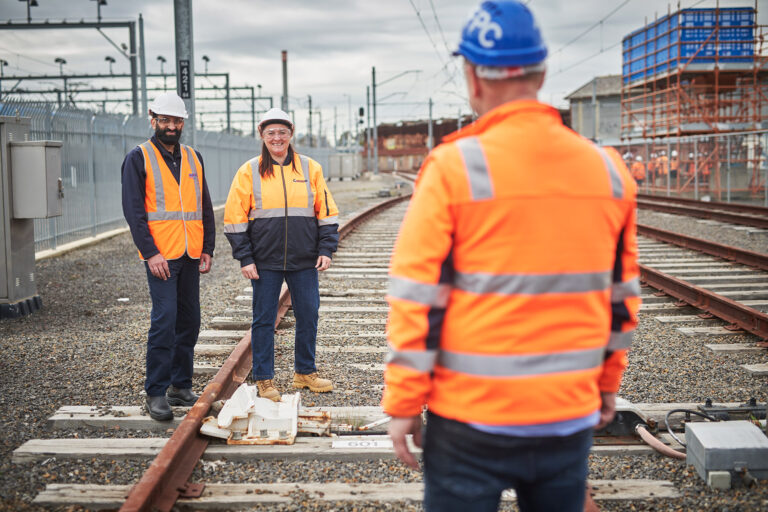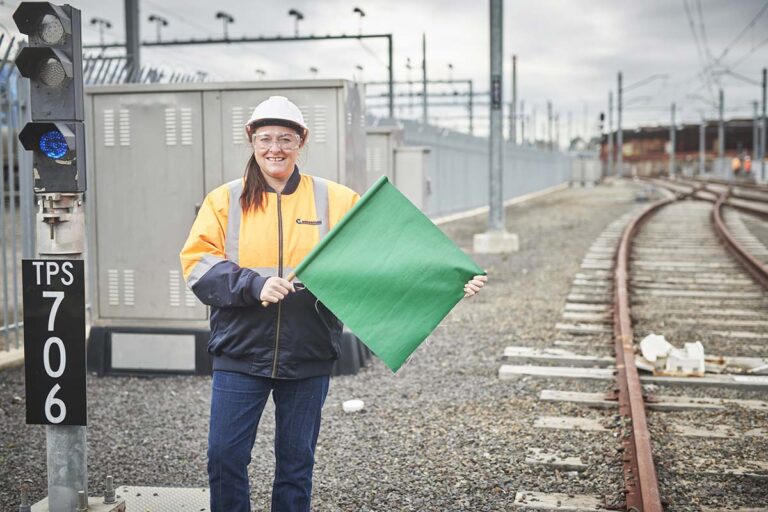Why working a trade in the rail industry is a good career move
The rail industry, a cornerstone of Australia’s transportation infrastructure, offers a multitude of compelling reasons for individuals to consider a career within its dynamic landscape. Beyond the clatter of wheels on tracks and the rhythmic hum of engines lies a sector that provides stability and a range of opportunities for professional growth and personal fulfilment.
Steady Demand and Job Security
One of the primary attractions of working in the rail industry is the consistent demand for skilled professionals. As the backbone of Australia’s transportation network, the rail sector plays a pivotal role in ensuring the efficient movement of goods and people across the vast expanse of the country. This inherent significance translates into a steady demand for skilled rail industry workers, providing a sense of job security that is invaluable in today’s ever-evolving job market.
Diverse Career Opportunities
The rail industry is not a monolith; it is a multifaceted sector encompassing many roles and responsibilities. From operations and maintenance to engineering and project management, the sector offers diverse career paths that cater to individuals with various skills and interests. This diversity allows professionals to find roles that align with their expertise and passions, fostering a sense of purpose and engagement in their daily work.
Accessible Entry Points
The rail industry is inclusive in welcoming individuals with varying levels of experience. For those new to the industry, numerous opportunities exist for learning and training under registered training organisations (RTOs). These programs equip aspiring rail professionals with the necessary skills and knowledge, providing a solid foundation for a successful career journey within the sector.
What Is a Rail Industry Worker (RIW) Card?
The Rail Industry Worker (RIW) program serves as Australia’s comprehensive competency management system, designed to monitor and uphold the skillsets of professionals within the rail industry.
In 2012, the Australasian Railway Association (ARA) collaborated with Metro Trains Australia (MTA) to introduce the Rail Industry Worker (RIW) system. This initiative was established to enhance compliance processes and maintain the currency of workers’ data, ultimately prioritising the health and safety of individuals employed in the rail industry.
One of the fundamental prerequisites for anyone entering the rail industry is obtaining a Rail Industry Worker (RIW) card. The RIW card is a physical card linked to a rail worker’s RIW profile—an electronic record of the worker’s most recent training and skill set. This card is a crucial certification, indicating that the holder has met the safety and competency requirements to work on the rail network.
Rail workers must complete the mandatory requirement of taking the Safely Access the Rail Corridor (SARC) course from registered rail organisations to obtain a RIW card.
Along with other medical and skills certifications, the Safely Access Rail Corridor course assessment is a requirement for your RIW card if you are employed by, or intend to be employed by, rail networks such as Australian Rail Track Corporation (ARTC), Aurizon, John Holland and DPTI (SA).
At CERT Training, we offer the following SARC courses:
- NSW: The course may also be referred to as SX52, RISI or, TfNSW Accessing the Rail Corridor Induction
- VIC: V/Line Safely Access the Rail Corridor (SARC)
- QLD: QR3.2 SAFELY ACCESS THE RAIL CORRIDOR & TLIF0020 (SARC)
- SA: Safely Access the Rail Corridor (SARC)
- WA: Safely Access the Rail Corridor (SARC)
Across most states the SARC course needs to be completed in-person, however the Queensland Rail Network also accepts this course undertaken via Zoom (TLIF0020 SARC Training Online ** ZOOM **).
What does having a white card mean?
For a person working or entering the rail industry through construction, a White Card is also required. This card, formally known as the Construction Induction Card, is a nationally recognised certification that is mandatory for individuals, including site managers, surveyors, labourers and workers in the construction industry and rail infrastructure projects.
The White Card attests that a cardholder has completed a general construction induction training course covering essential safety information relevant to construction work.
To obtain a White Card, individuals must complete Prepare to Work Safely in the Construction Industry (CPCCWHS1001), a mandatory general construction induction training course, through a nationally accredited registered training organisation (RTO). The course covers critical topics such as work health and safety regulations, hazard identification, and risk management. Upon successful completion of the course, individuals are issued a White Card, valid across all Australian states and territories.
Financial Rewards
The sector recognises the importance of attracting and retaining skilled talent and, as a result, offers competitive salaries and benefits packages. This financial stability enhances the overall appeal of working in the rail industry, providing individuals with a rewarding and economically sustainable career.
Continuous Innovation and Professional Development
The rail industry is not immune to technological advancements and the need for innovation. With ongoing infrastructure projects and the integration of cutting-edge technologies, rail sector professionals can stay at the forefront of their field. The industry’s commitment to embracing change translates into various training and development programs, allowing individuals to upskill and advance in their careers. This commitment to continuous improvement benefits the individual and contributes to the industry’s overall progress.
Whether you’re drawn to operations, maintenance, engineering, or project management, the rail industry offers a pathway for you to carve out your niche.
So, take that first step. Explore the training programs, embrace the learning opportunities, and envision yourself as a valuable player in an industry that thrives on collaboration, innovation, and a shared commitment to excellence. Become a rail industry worker and be part of a legacy that shapes the present and future of Australia’s transportation landscape.
To enquire about our upskill courses, contact us on 1300 042 3780 or click your state below to pick the right training for you:
Enrol in CERT Training now to start your trade journey with us.
To stay updated about rail industry practices, key safety information and best practices, follow us on our social media:FacebookandLinkedIn.

RIW Card Course: Safely Access the Rail Corridor
Working close to trains is exhilarating. However, there are ongoing health and safety protocols you will need to follow to keep yourself and others safe. Hence, courses like the mandatory Safely Access the Rail Corridor (RIW card course) are important.

Improve your Safety Critical Communications
The Safety Critical Communications in the Rail Environment course is designed to develop and further increase participant’s communication and negotiation skills across the rail industry…

What is the ARTC and How can you get a NSW rail job?
For those interested in a challenging and rewarding career in freight rail, there’s plenty of opportunities around Australia. One of the largest freight operators…
